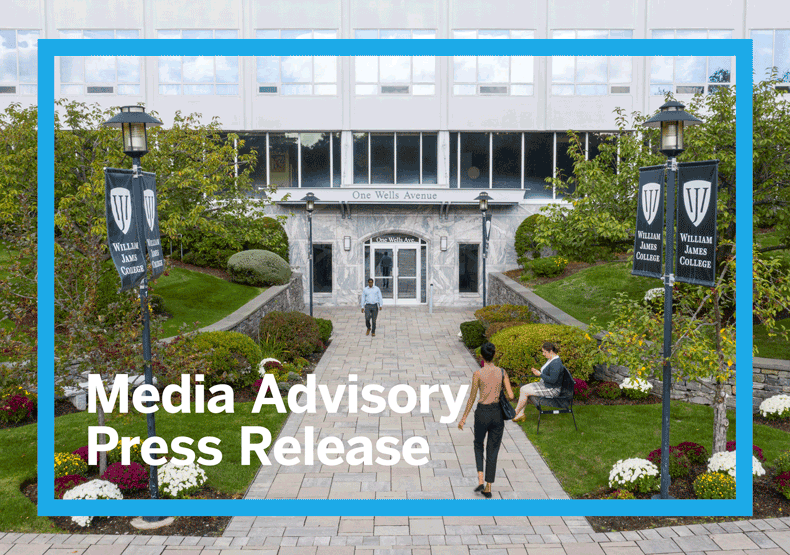New Faculty Fellowship Program Aims to Recruit Psychology and Counseling Teaching Faculty from Under-Represented Communities

Press Release Announcement
William James College, a leading college for the education of psychology, leadership, and behavioral health professionals, has announced the launch of a new institution-wide teaching faculty fellowship program for recent graduates with doctoral degrees in Clinical Psychology, Counseling, Organizational and Leadership Psychology, and School Psychology. The program will equip teaching faculty fellows with the ability to navigate momentous changes occurring in academe, to engage in innovative inclusive teaching practices, and allow them to gain competence needed to respond to the complex needs of an increasingly heterogeneous student body.
“The primary aim of the fellowship is to develop a critical mass of exceptionally talented and well-trained faculty members from communities historically underrepresented in academic settings,” said Dr. Stacey Lambert, vice president for academic affairs at William James. “The program will prepare fellows to use their skills, experiences, and expertise to engage in paradigm shifting inclusive teaching, advising, and research practices as well as in administrative and leadership positions in academia.”
The William James College Teaching Faculty Fellowship program invites recent doctoral recipients (those whose doctoral degrees were conferred in the past three years, including those who will complete graduate studies by August 2022) to pursue academic careers where their training and expertise, along with their identity and lived experience, can help shape a new generation of behavioral health professionals. This fellowship seeks individuals who identify with groups that are not considered majority identities or that have historically been less visible in academia, including individuals with disabilities, LGBTQIA+, ethnic and racial minorities, military and veteran populations, and religious and linguistic minorities.
Studies show that client outcomes improve when behavioral health professionals demonstrate multicultural competence and when treatment plans align with a client’s culture. However, with a workforce that is 90 percent non-Latino Caucasian, it is extremely difficult for clients seeking such providers to find care. Additionally, faculty diversity enhances cognitive development and critical thinking skills among students, thereby increasing their academic achievements, and both students’ sense of belonging and student retention are fostered when faculty members are more representative of the U.S. population.
“The number of providers who possess the knowledge and skills to meet the needs of individuals and families from historically marginalized backgrounds is incredibly small,” said Dr. Natalie Cort, director of the Fellowship program. “By recruiting and supporting early-career faculty members who, themselves, identify as belonging to these communities, we have an opportunity to create training pathways that reshape the behavioral health landscape.”
Dr. Cort is also an associate professor of Clinical Psychology at William James College, co-director of the College’s Center for Multicultural & Global Mental Health, associate director of the HRSA-funded Specialized Training & Academic Retention Fellowship, and director of the College’s Black Mental Health Graduate Academy.
According to Dr. Cort, “a critical function of the Fellowship is to provide transformational leadership, support, and vision in the development and promotion of faculty excellence in diversity, equity, and inclusion. The Fellowship is intended to prepare Fellows for future Core Faculty positions at WJC and in other academic settings. Ultimately, these future Core Faculty members will drive ground-breaking and creative solutions to effect systemic changes at the organization level and improve behavioral health outcomes among historically marginalized groups and underserved communities.”
Candidates with a strong interest in promoting diversity, equity, and inclusion, along with a demonstrated commitment to serving underserved communities are encouraged to apply. Priority will be given to applicants with a background—or interest in developing expertise—in consultation, family and systems theory, personality and cognitive assessment, neuropsychology, program development and evaluation, substance use disorders, or psychodynamic theory, research, and practice.
Fellows will receive teaching, advising, and mentorship opportunities; didactic training in inclusive teaching and learning designs, strengths-based pedagogical approaches, and culturally empowering instructional strategies; professional development, research, and program evaluation experiences; a highly competitive salary; and opportunities for career advancement at the College.
The Teaching Faculty Fellowship is a collaboration between the Office of the Vice President for Academic Affairs, the Center for Workforce Development, and the Office of Diversity, Equity, and Inclusion.
Application materials should be submitted online via the College’s website. Applicants must be able to assume employment in the U.S. without College sponsorship. Interested candidates are strongly encouraged to apply by Friday, April 8th, 2022. Applications will be reviewed on a rolling basis until all positions are filled.
For more information, interested candidates are invited to contact Dr. Natalie Cort at natalie_cort@williamjames.edu or the William James College Human Resources team at HR@williamjames.edu. Media Inquiries should be directed to anne_wilson@williamjames.edu
About William James College
Founded in 1974, William James College is an independent, non-profit institution and a leader in educating the next generation of mental health professionals to support the growing and diverse needs of the mental health workforce. Integrating field work with academics, the College prepares students for careers as organizational leaders and behavioral health professionals who are committed to helping the underserved, multicultural populations, children and families, and veterans. William James College alumni can be found making an impact in a variety of settings, including schools, the courts, clinical care facilities, hospitals, the community, and the workplace. To learn more about the College, please visit williamjames.edu
Topics/Tags
Follow William James College
Media Contact
- Katie O'Hare
- Senior Director of Marketing
- katie_ohare@williamjames.edu
- 617-564-9389
